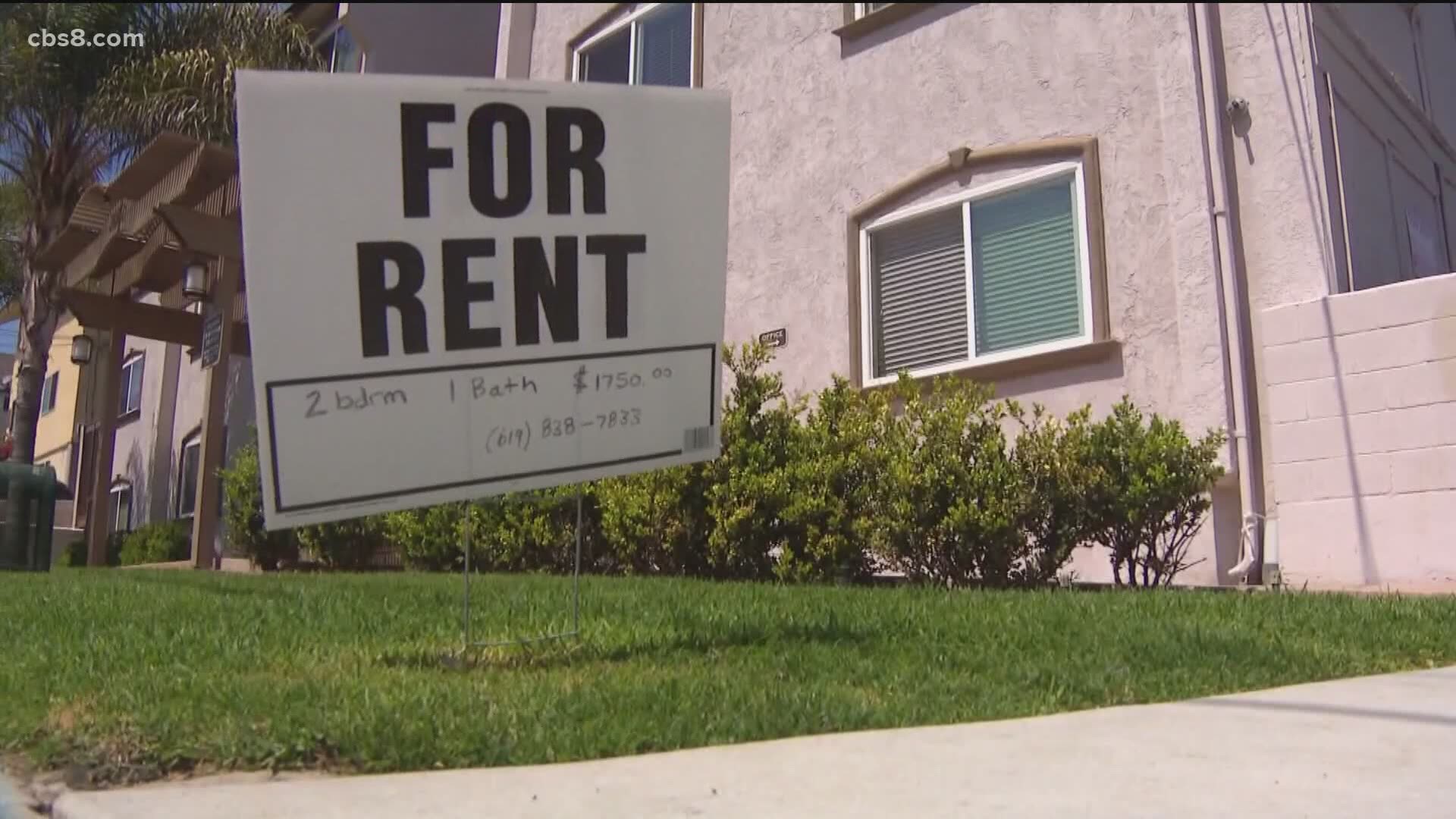SAN DIEGO COUNTY, Calif. — San Diego will make more than $42 million in federal emergency rental assistance available to city residents, Mayor Todd Gloria announced Thursday, saying he is also proposing an extension of eviction protections for renters and businesses.
"As long as San Diegans are suffering financially from this devastating pandemic, it's the city's obligation to do whatever it can to protect them," Gloria said. "Our top priority is to ensure that no one becomes homeless or loses their storefront because they've lost income or revenue due to the emergency shutdown orders. The federal funding we've received will provide a huge boost for both renters and landlords."
Last year, the city created programs that distributed more than $15 million in assistance for struggling residential renters and nearly $19 million for small businesses.
The $42.3 million the city has received as a result of the federal Consolidated Appropriations Act, signed into law in December, is intended to provide financial assistance to cover unpaid rent and utilities for qualifying residential households affected by COVID-19.
This funding will be distributed through a program administered by the San Diego Housing Commission, and details on eligibility and the application process will be forthcoming.
The city will continue advocating for a share of state and federal assistance for small business relief proposed by Gov. Gavin Newsom and President Joe Biden, Gloria said.
Some San Diegans struggling to keep a roof over their heads are hopeful that this assistance will be enough.
"It seems like whenever we take one step forward, we move two steps back," said Cathy Mendonca, co-director of San Diego Tenants Union.
"I don't believe it is nearly enough," she added. "Just because the assistance is there, doesn't mean that everybody knows that it's there."
Mendonca also said that some landlords are finding legal loopholes, like undertaking renovations on their rental properties, as a means of forcing renters out.
"There are many tenants who are falling through the cracks, being evicted not because of non-payments, but for other reasons," Mendonca said.
She also concedes, though, that some property owners who owe mortgages are suffering as well.
"For small landlords, many of them are being left out of this conversation," she said. "For them there should be mortgage relief."
Mendonca is also an advocate of a local movement to cancel rent debt that is also gaining support statewide.
Through an ordinance enacted last year, San Diego renters affected by the pandemic were protected from eviction between late March and August 2020. On Sept. 1, state urgency legislation signed by Newsom took precedence over the city ordinance.
However, that law sunsets after Jan 31. To continue providing protection for renters, the City Council will consider an emergency ordinance Tuesday. Gloria's proposed ordinance for residential tenants would remain in effect until 60 days after the city's emergency declaration is lifted.
Businesses were also protected from eviction by last year's ordinance but were not covered under the legislation Newsom signed. Gloria will propose reinstating protections for commercial tenants through June 30, 2021, or 60 days after the city's emergency declaration is lifted, whichever comes first.
"This eviction moratorium helps us avoid further spread of COVID-19 and gives some relief to renters and businesses in these extremely difficult times," City Council President Jennifer Campbell said. "I urge tenants and property owners to work together as we start on the path of vaccination and economic recovery."
Under the proposed ordinances, residents and businesses would remain responsible for any unpaid rent or lease payments. Tenants and landlords are encouraged to work out repayment plans. Tenants must contact their landlords in order to qualify for protection.
If those ordinances pass as proposed, qualifying residents cannot be evicted for unpaid rent due to financial hardship related to COVID-19 accrued during the period starting in March 2020 and ending 60 days after the city's emergency declaration ends.
Any unpaid rent that accumulates during this period and is not repaid will be converted to consumer debt. However, the terms of Assembly Bill 3088 take precedence for rental debt accumulated September 2020 through January 2021.
Affected businesses would have six months from the end of the commercial eviction moratorium to make any outstanding payments.

